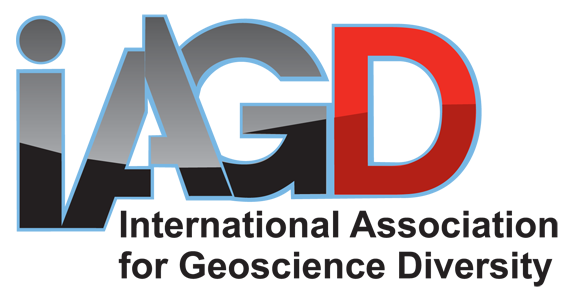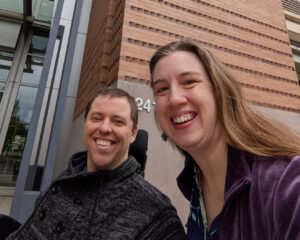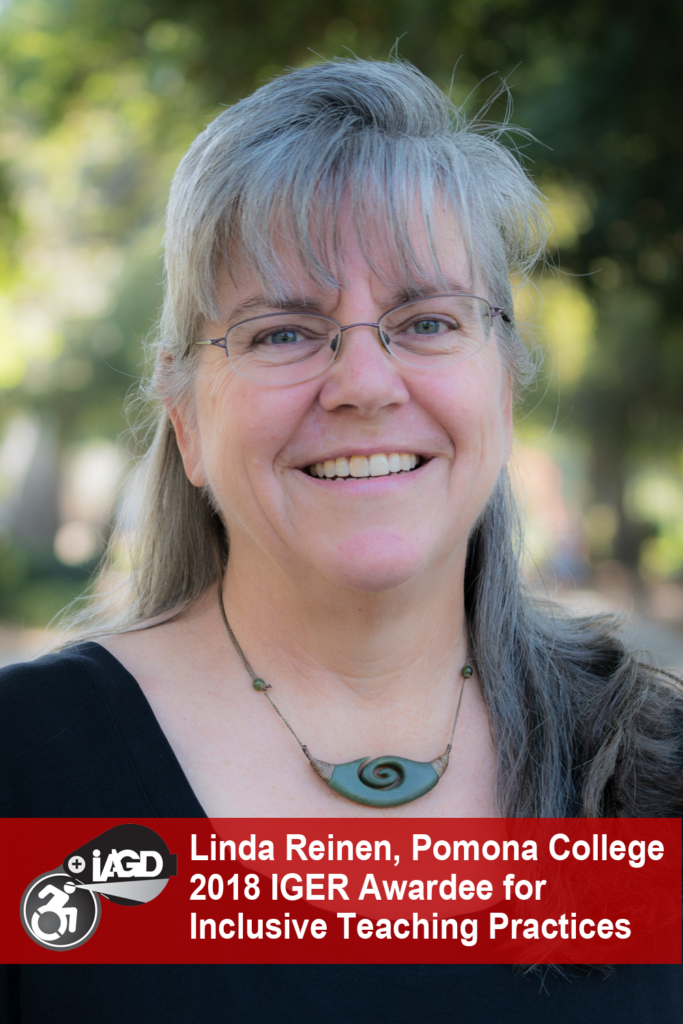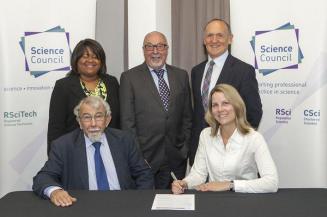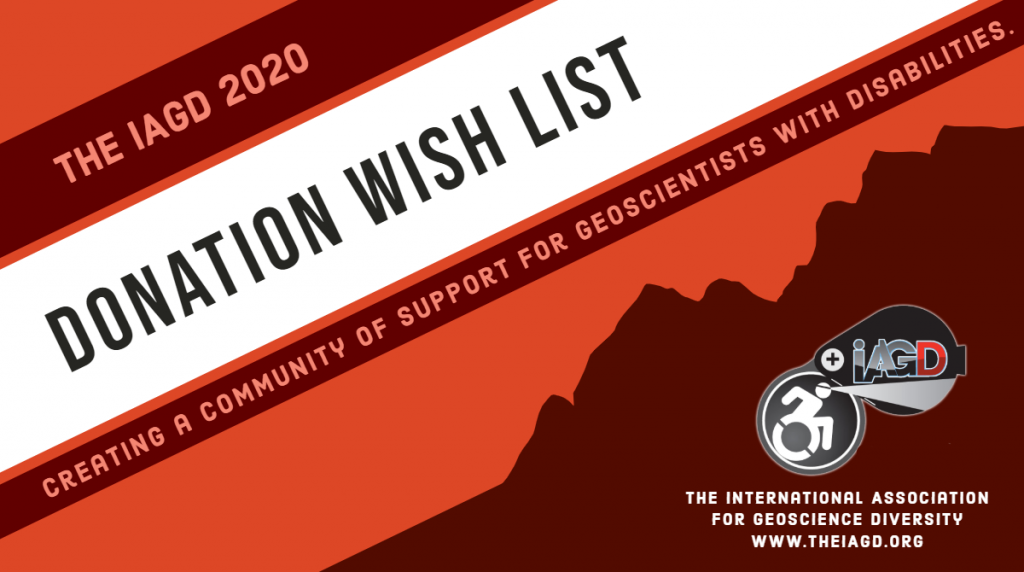
The holiday season is upon us, which means fundraising season is in full swing. The International Association for Geoscience Diversity has grown so much in the past few years in membership and reach. Students contact us daily for our assistance in advocating for better access and inclusion in their courses, connecting with inclusive learning opportunities and requests for financial support to cover the additional costs people with disabilities often pay to participate in conferences or field work. Teachers use our resources to improve accessibility in their geoscience classrooms, labs, and field sites. Researchers connect, collaborate and disseminate their education-based research through our networks. And our annual field trips have become an incredible opportunity for geoscientists at all career stages to find a network of understanding and supportive peers and allies. These are the things that give us joy and why we do what we do. But we have reached a size where the growing pains are becoming harder to ignore. Here are our current high-priority fundraising needs in addition to basic operating costs. Think of this as our Holiday wish list.
1. Student Travel Grants ($500 per student): We get many requests from students and early career researchers that struggle to pay for the hidden costs of attending conferences and completing field work with a disability. Everything from the need for on-site hotels at conferences to accessible transportation and adaptive outerwear can add a significant cost to what is already a pricey undertaking. We have sponsored a few students and would love to say “yes!” to many more requests. Another way you can help is to purchase gift cards and other items on our Amazon Wish List. For example, on-site hotels are the only way some disabled scientists are able to participate in a conference. Gift cards for hotel stays can be used to for rooms in on-site or nearby hotels at conferences, which greatly helps our members with chronic fatigue and/or personal care needs during the day.
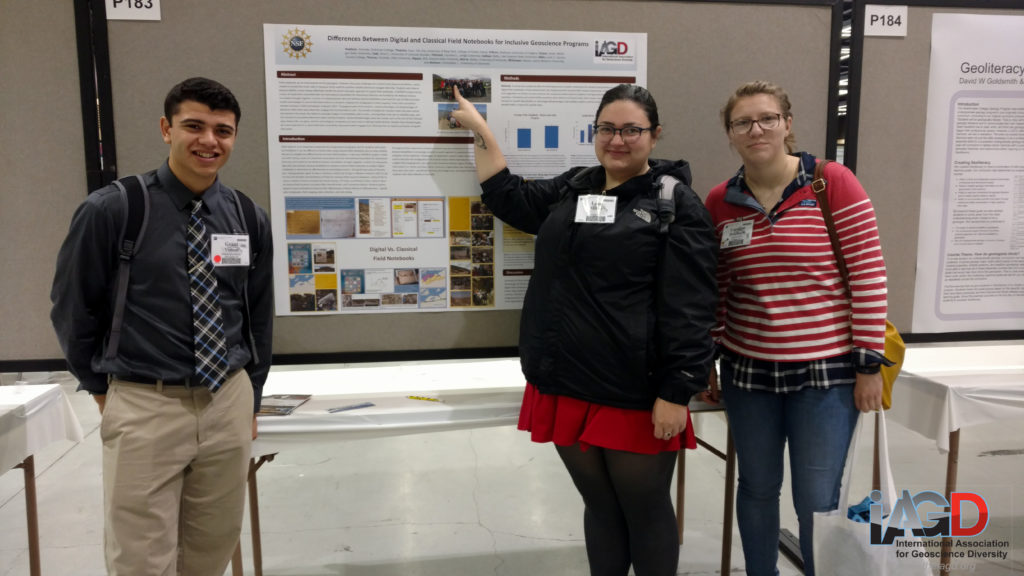
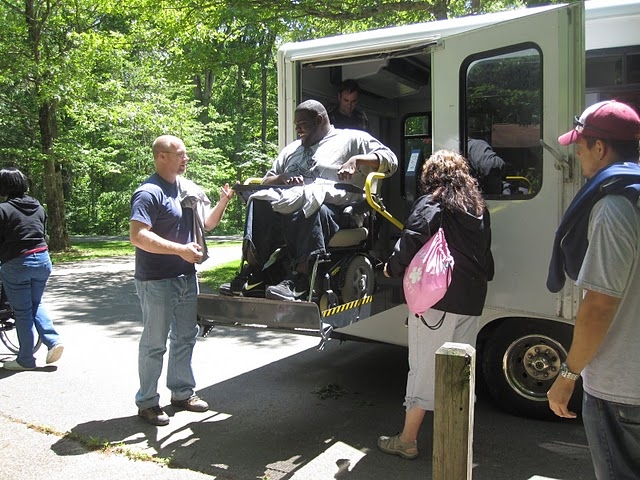
2. Field trips ($500 per participant, or $10,000 for named sponsorship): Our GSA annual field trips have become incredibly important part of our yearly activities. First, they provide a chance for geoscientists with disabilities to get out in the field and build friendships and professional networks. Second, Faculty and teachers attend to learn more about inclusive field education. And third, our field trips are our flagship activity and greatly aid our visibility as an organization. In years past, we have eliminated the financial barrier to participation by offering these trips at no cost to participants. Lodging, meals, accessible transportation and fees collected by the professional societies at which these field trips are offered all add up to a significant financial investment. What most people don’t know is that we have offered these trips at no cost through federal grants, and the projects that funded them have ended. We believe asking participant to pay out of pocket for our Accessible Field experiences is counter to our mission, so we must fundraise or find sponsors to offer these trips going forward.
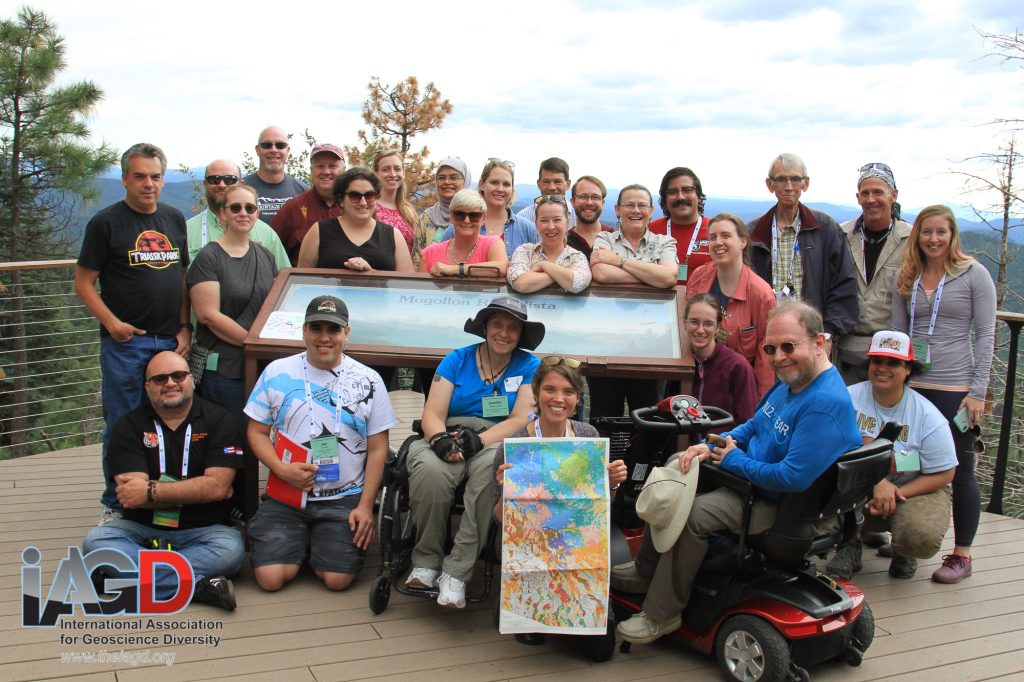
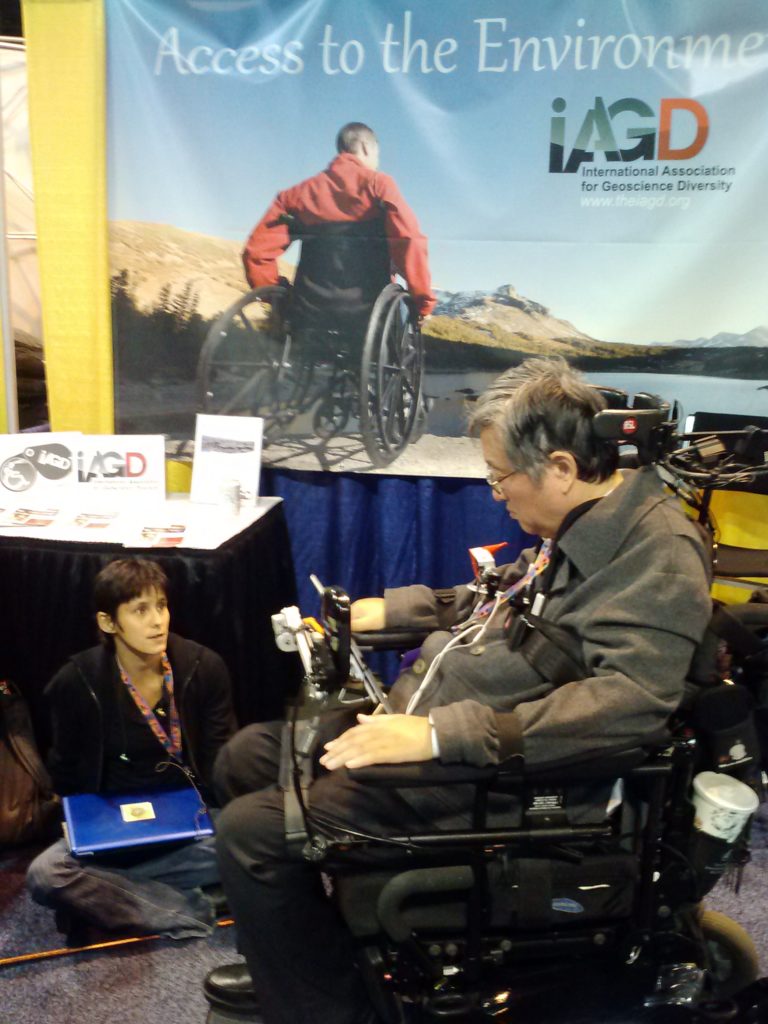
3. Booth Fees & materials ($2000-$3,000 per national conference, $200-$500 for local/regional conference): Our presence at national and regional geoscience and STEM meetings is a key part of our mission. We reach many people for the first time at our booth in the expo hall, sponsored sessions and events. Our booth has been a hub for our members as a welcome place to sit and rest and catch up with friends for years at GSA, and for the first time last year at AGU. Our booth enables us to reach many students and faculty with disabilities looking for a community of support and many instructors, and department chairs and other academic leaders who might not have sought us out on their own. The national conferences are especially costly, even the non-profit rate for a booth is extremely expensive, and only covers an empty 10×10 space. Everything from the table to the carpet (which is required) must be either shipped or rented. The booth is set up and staffed by volunteers, many of whom pay their own way to the conference out of pocket.
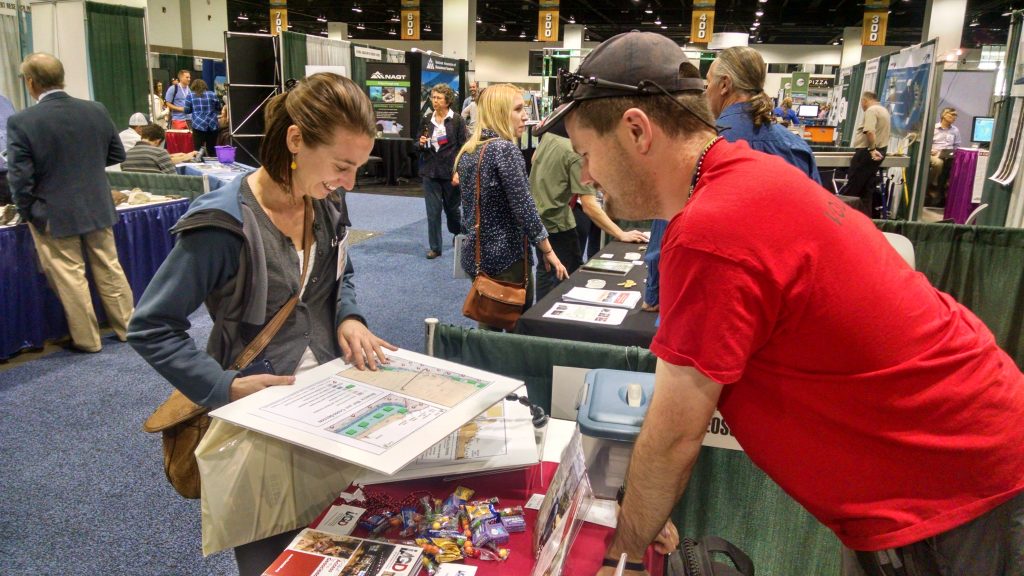
4. Awards: The Inclusive Geoscience Education Research (IGER) Award recognizes faculty, graduate students, teachers and professionals that are making a tangible impacts in the ream of disability inclusion in the geosciences. Currently, this award comes with a nominal cash prize, but we would like to increase this award enough to cover registration fees and partial travel expenses to a national conference to support the awardee and we can continue to present the award in person.
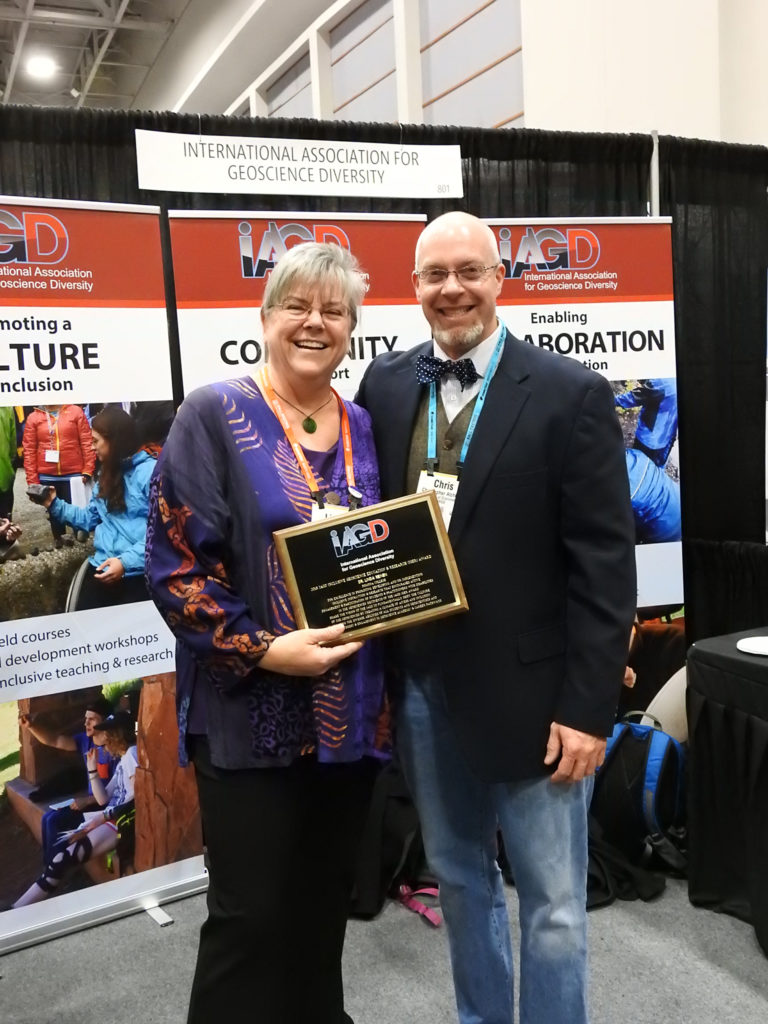
5. Operating costs: Every organization has operating costs. No one makes any money off the IAGD – we are all volunteers. But websites, promotional materials, shipping costs, cloud storage, etc. cost money! Although operating costs seem like a less glamorous thing to support with your donation, it is vital to keeping the IAGD running. In an ideal world, we would have funds to support an administrative assistant – even a part-time work study position would do wonders for our backlog of administrative tasks. And grant writer on contract would greatly improve our ability to find and secure larger grants and keep us financially stable and advance our inclusive and accessible programs. This work, in addition to maintaining the website, listserv, social media, bookkeeping, field trip planning and logistics, conference booth reservations and staffing, and replying to the many email inquiries we receive is currently being done by a small group of volunteers, who are squeezing these activities into increasingly limited free time. General donations to the IAGD support our operating costs AND programs, and allow us to continue our mission to make the geosciences an inclusive place for everyone.
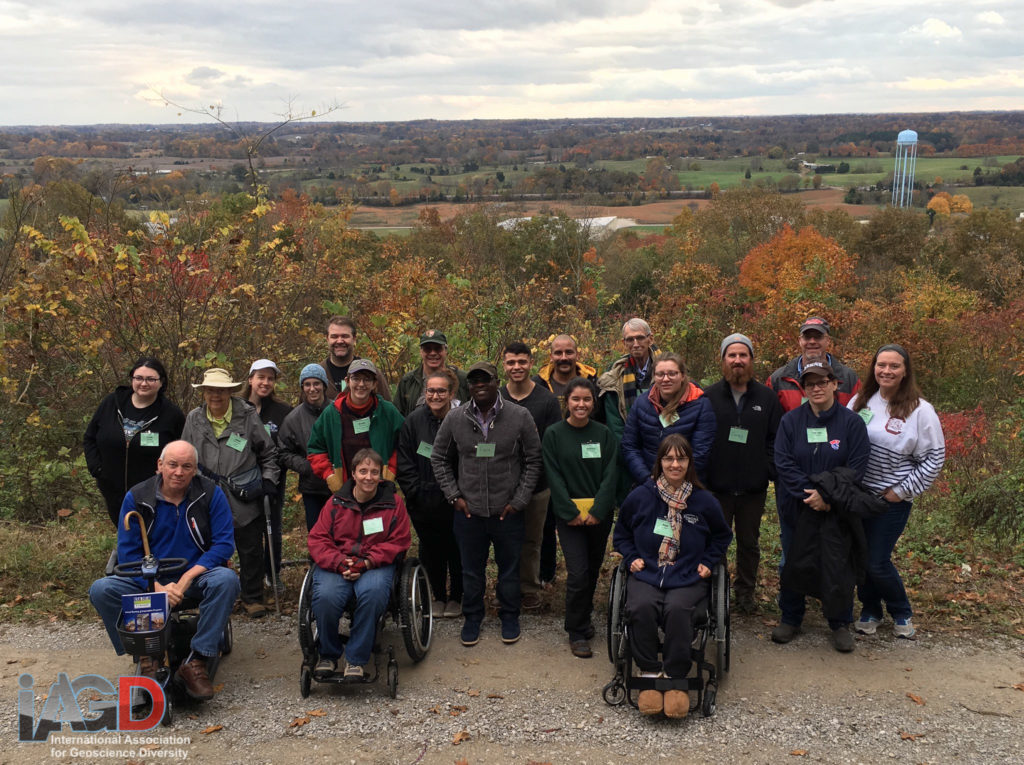
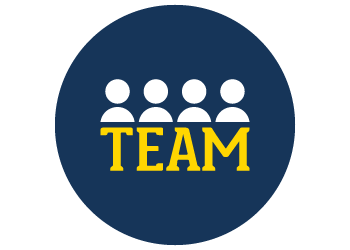
6. Volunteers (cost: some of your time): Don’t have cash but want to help? Donate your time and talents. There is always a need for people who can help out with basic administration, social media, design work and more. There are so many things we would like to do, but we simply don’t have the personnel to do it all. Weather you have a little time or a lot to give, we can put you to work and use your talents to make a difference.
If you’ve read this far, you are probably ready to jump in and help! For volunteer opportunities, drop us a line at info [at] theIAGD.org. Purchase hotel stays, flights and other things to help us support travel for geoscience students with disabilities on our Amazon Wish List. Tax-deductible donations are accepted through PayPal, Facebook, or by mail to: The IAGD Foundation, PO Box 210022, Cincinnati, OH, 45221
